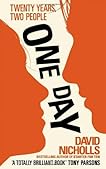If you are a woman for whom reading is like breathing, only much more interesting, you will love Eleanor Brown’s The Weird Sisters. The title refers to the three witches of Macbeth, though our heroines are quite normal young women. At least they will seem normal to readers raised in bookish families, who will revel in the love of reading that permeates the novel:
“She turned to look back into the living room, one dim light behind our father’s favorite sun-paled orange wing-back chair spreading shadows over the opened books that covered every surface despite her attempts to keep them orderly. Our family’s vices—disorder and literature—captured in evening tableau. We were never organized readers who would see a book through to its end in any sort of logical order. We weave in and out of words like tourists on a hop-on, hop-off bus tour. Put a book down in the kitchen to go to the bathroom and you might return to find it gone, replaced by another of equal interest. We are indiscriminate.”
Dad is a professor who speaks in Shakespearean quotes and who drew the names of his daughters—Rose, Bean (Bianca), and Cordy—from the plays. The sisters, now in their late twenties, have moved back home, ostensibly to help their mother through cancer treatment. The eldest, over-responsible Rose, a professor herself, has never left their small college town. She moves easily into the role of caretaker and overseer, soon realizing, to her annoyance, that her younger sisters are as much in need of care as her mother. Both carry secrets we are privy to long before the family: sophisticate Bean has been fired from her Manhattan
Brown does a terrific job creating three distinct women who are both bound to each other and bound to drive each other crazy. After many false starts and unwise decisions, each eventually redefines her life. I think any woman will identify with at least one of the sisters. This is neither tragedy nor romance, but the ups and downs of ordinary women stumbling through ordinary life. Brown imbues the book with hope and humor as her characters become our friends--often in that exasperating way friends have of getting under your skin.
The book reads easily, but its point of view, a sort of omniscient first-person plural, can be confusing. At first you’ll try to figure out who's telling the story; everyone is described in third person, but with the pronoun “our”: our father, our Cordy. My advice is to just accept this technique and let yourself get lost in the story.
If you enjoy audio books, Kirsten Potter’s reading is one of the best I’ve ever listened to. But now I have to buy the book in print so I can savor all the great passages about reading.


